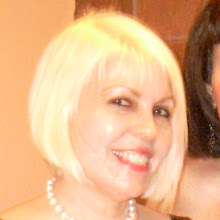
The reason classes like our horror reading class are good is that I never would have read this book on my own. The subject matter would have put me off.
But I’m glad I did. I started out knowing nothing about the book and didn’t even realize it was based on a true incident until I read the end matter from the author.
Ketchum begins the book by setting up a question that makes us want to read more. Who is Ruth and why does the author have such a hatred of her? Why is it that he purposely never had children? The mystery deepens when we meet Meg, the object of David’s juvenile affection and her little sister, Susan, who are living next door after their parents were killed in a terrible accident.
We start out in a world of swimming holes, stay-at-home moms and endless languid summers spent getting into mischief with the other kids in the neighborhood. Things turn gradually dark with David’s description of “The Game,” a sadistic sport in which his friend’s little sister ends up getting tied up naked.
The author tips us off to what will happen when Meg tells David that she hates the fallout shelter her new family has in the basement.
From there, Ketchum masterfully escalates the action of the story. At first Ruth is just impatient and cross with Meg for apparently no reason, but her hatred of the girl turns cruller and cruller. David watches, amazed, as her sons and other kids from the neighborhood join in the torture of Meg. At first David is applauded at her treatment at the hands of his supposed friends with their mother Ruth giving adult supervision.
David chronicles Ruth’s slow slide into insanity. She gets sicker, paler, riddled with sores with a nagging cough. Her house grows more and more dirty and decayed. And the horrible tortures they inflict upon Meg become sicker and more lethal.
The most disturbing part of this story is watching David’s initial infatuation with Meg turn into apathy then distain as his friends abuse her. He fights his own sexual excitement at seeing her naked and tortured. While I was reading the book, I thought it was unrealistic that David wouldn’t have told some adult at the point that they started holding her captive in the basement. Still, Ketchum convincing portrays David being gradually drawn into that “Lord of the Flies” mentality.
When Ruth and the neighborhood kids’ treatment of Ruth becomes so deplorable that he wants to go tell someone, then he thinks he’ll be put away as an accomplice. He tells himself it will all have to be over by the time school starts because then someone will miss her.
The 1950’s is a perfect setting for a story in which people feel that what happens in a family’s home is their own business. Meg initially tries to tell a policeman of her plight, but he doesn’t listen. This adds to David’s mistrust of adults and his feelings that he can’t tell anyone about Meg’s captivity and torture, and it isn’t until he fears for her life that he actually tries to help her escape, and then all he actually does is open the door and let her escape on her own (which fails), he doesn’t actually help her. When one of the kids tells his mother, she expresses the belief that the girl probably deserved for being “loose,” and she felt she should stay out of another family’s business.
I was somewhat surprised at the end to find out that this was based upon an actual incident. I know that groups of people are capable of such cruelty, but David is set up to be a boy who is more sensitive then the norm and given that personality, I can’t believe he wouldn’t have told someone.
I know that people definitely have the mob mentality potential, but as a woman it made me wonder if young boys truly have the capacity to be that bad. Of course we know that some are that bed, but I think the book was especially disturbing because David was portrayed as a good kid. He even had a huge crush on Meg at one time, yet he was able to objectify her to the point that he ceased to care about her pain. He started taking pleasure in seeing her nude body and felt guilty about that, but somehow the fact of her being tortured and used degraded her in his eyes somehow.
I think the explanation would have to be that the whole turn of events took on an unreality for David. He felt like he wasn’t guilty because he was only watching, not taking part.
“And I remember thinking at least it’s not me.”
If I wanted to I could even join them.”
For the moment, thinking that, I had the power.”
Isn’t asserting power over others because you feel powerless yourself the basis for all abuse?

I was also surprised to find out this story was based on actual events. My one joy in reading it was that I was glad this didn't happen in real life. Then the further horror set in when I read the afterward.
ReplyDeleteThis is truly a sad book and I think you give a good explanation of it. I didn't quite see it the same way as David mistrusting adults, I think he was just a little too trusting of adults. Even kids today trust adults and never go against them until a certain age and I think David was at that age until he was forced into action at the end.